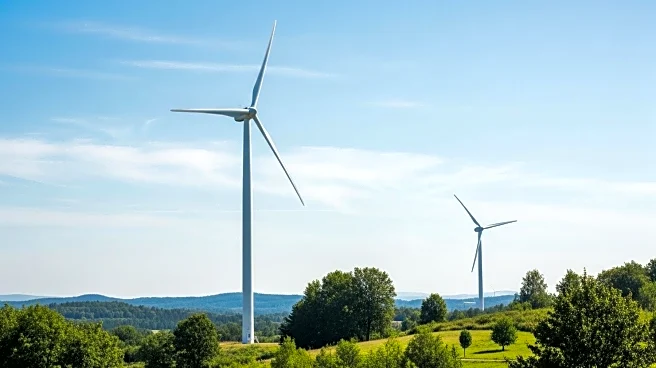What's Happening?
The Thai Cement Manufacturers Association (TCMA) and the Government of Saskatchewan, Canada, have signed a Memorandum of Understanding (MOU) to enhance cooperation in sustainable industrial development and decarbonization. The agreement focuses on the adoption of advanced Carbon Capture, Utilization, and Storage (CCUS) technologies and clean energy. The collaboration aims to accelerate the Thai cement industry's progress toward achieving Net Zero by 2050, with potential pilot projects in Thailand's Saraburi Sandbox. The initiative emphasizes knowledge transfer, technical expertise, and capacity building through training, workshops, and seminars.
Why It's Important?
This MOU represents a significant step in international collaboration for sustainable industrial development. By leveraging Saskatchewan's expertise in low-carbon technologies, the Thai cement industry can advance its Net Zero goals, contributing to global greenhouse gas reduction efforts. The partnership also strengthens Canada-Thailand relations, expanding trade and investment opportunities between the two countries. Additionally, the initiative supports Thailand's transition to a low-carbon society, enhancing industrial competitiveness and sustainability.
What's Next?
A joint working group will be established to drive the implementation of the MOU, with progress tracked through annual reports. The collaboration may lead to the development of pilot projects that serve as role models for industry decarbonization, inspiring similar initiatives in the region and beyond. The partnership is expected to facilitate business connections between Saskatchewan and Thailand, promoting the adoption of advanced technologies and innovations essential for achieving greenhouse gas reduction targets.
Beyond the Headlines
The MOU highlights the importance of international cooperation in addressing climate change and promoting sustainable development. It underscores the role of knowledge transfer and capacity building in advancing technological innovations, potentially influencing policy changes and encouraging broader adoption of low-carbon technologies.









